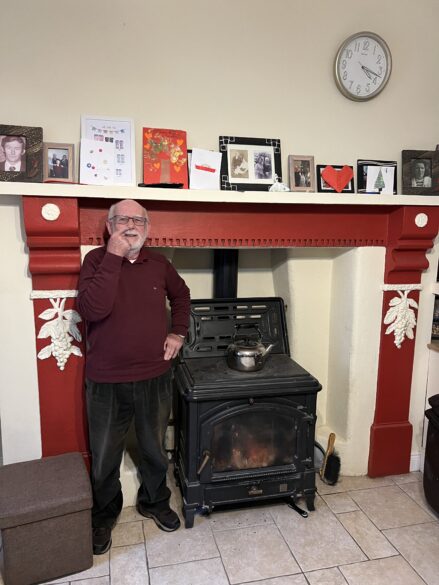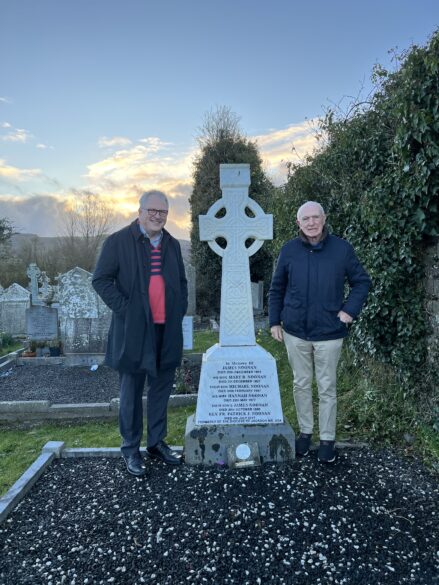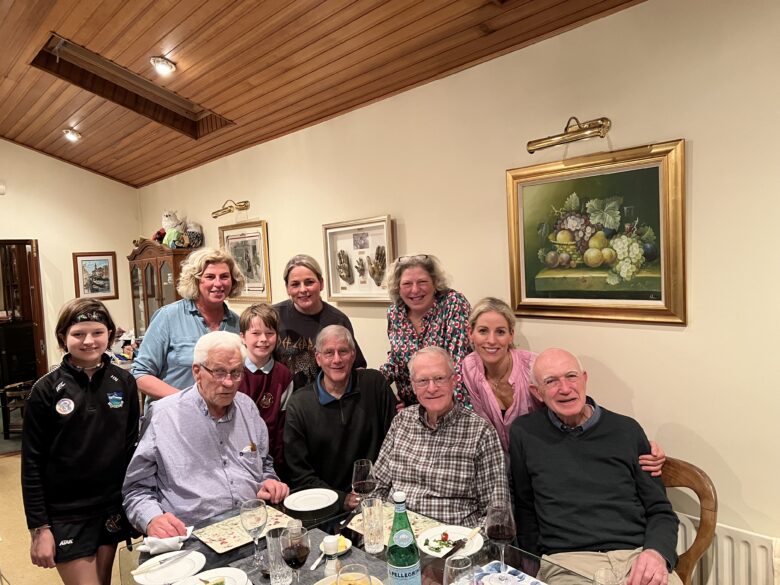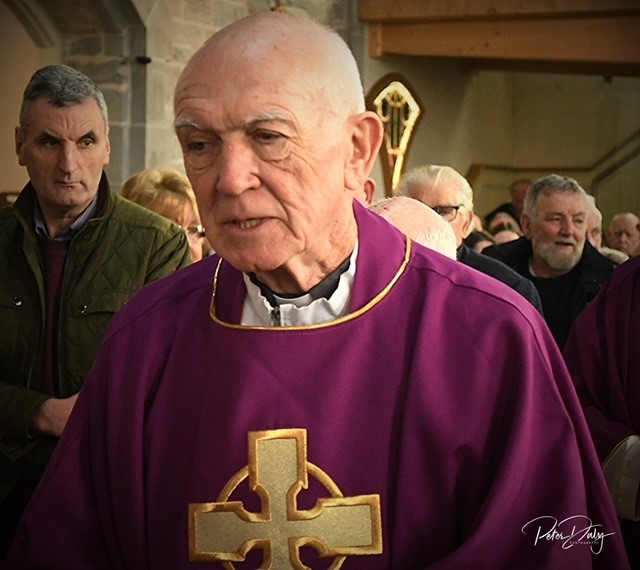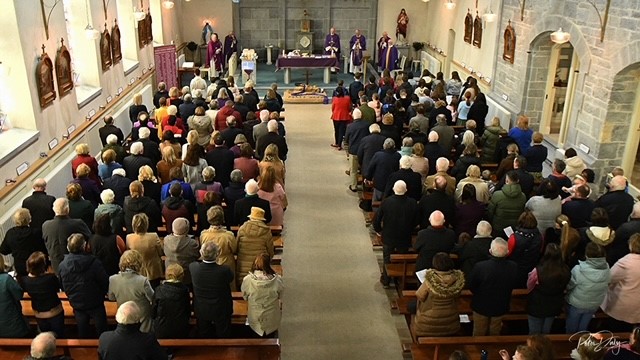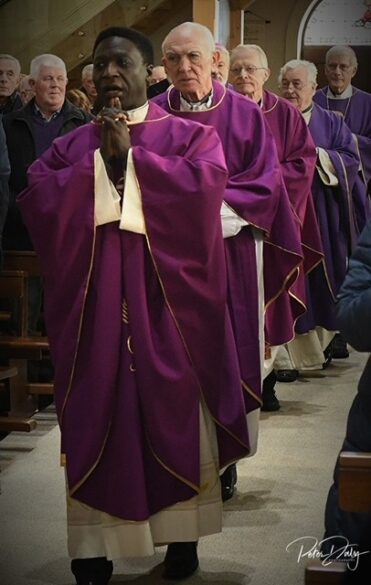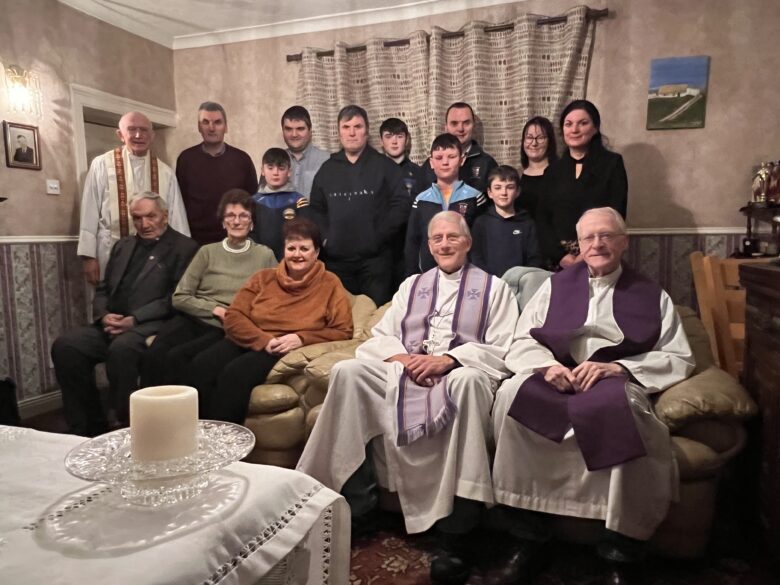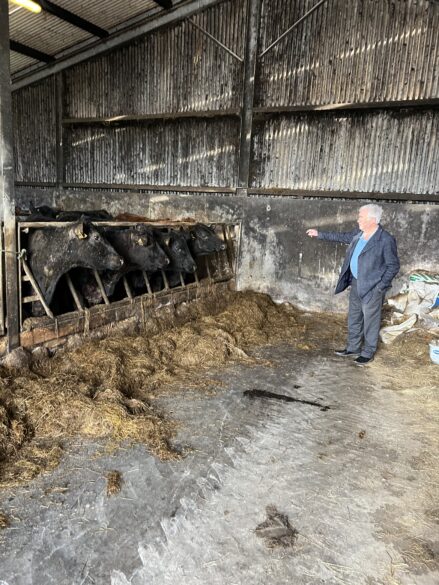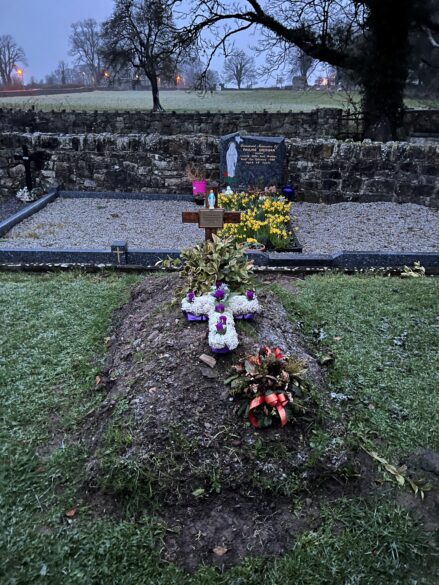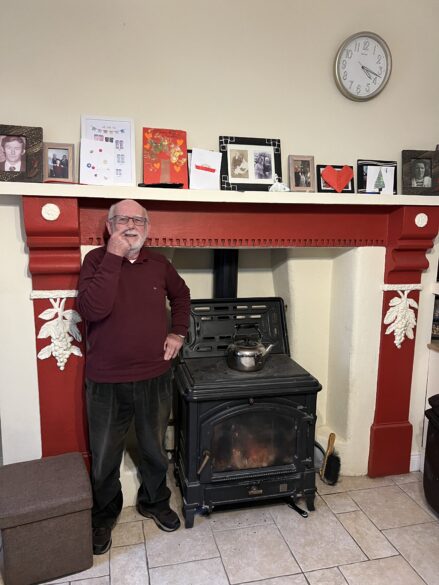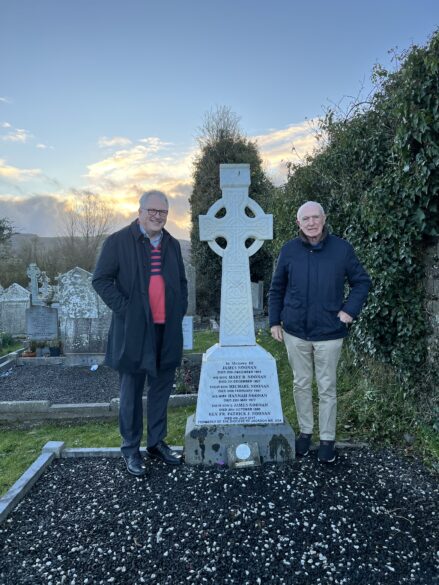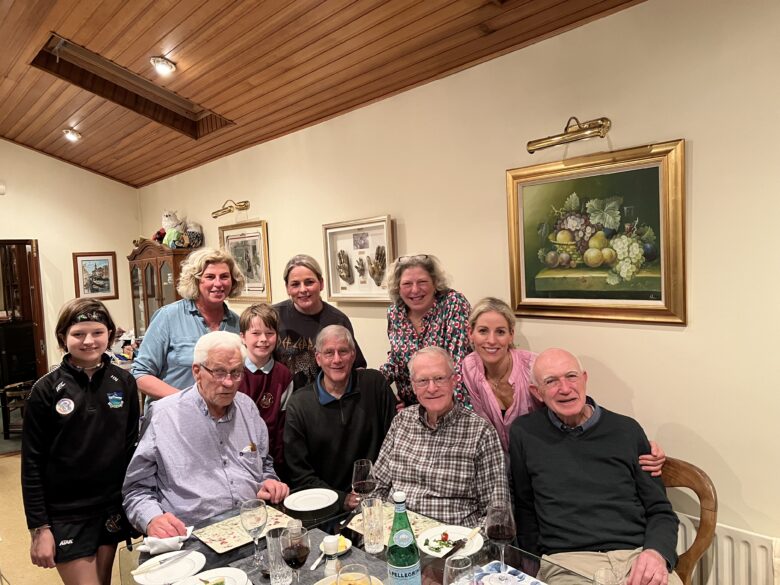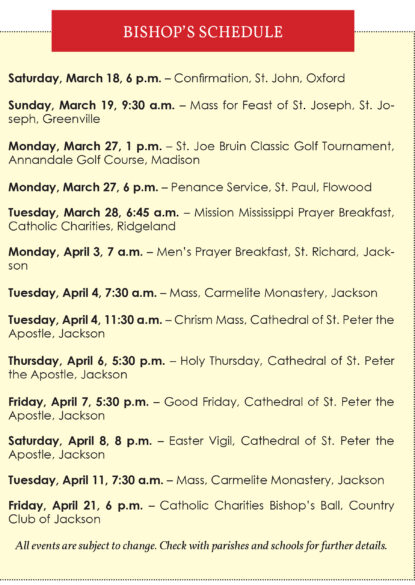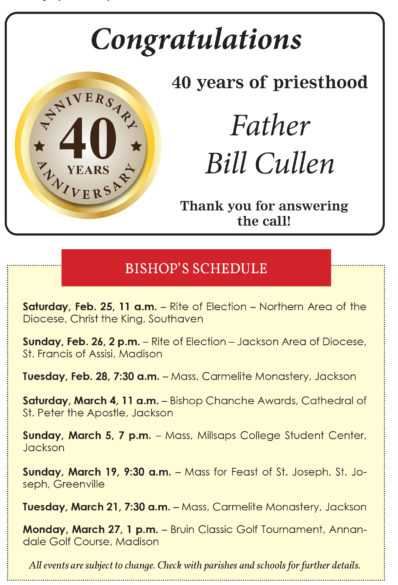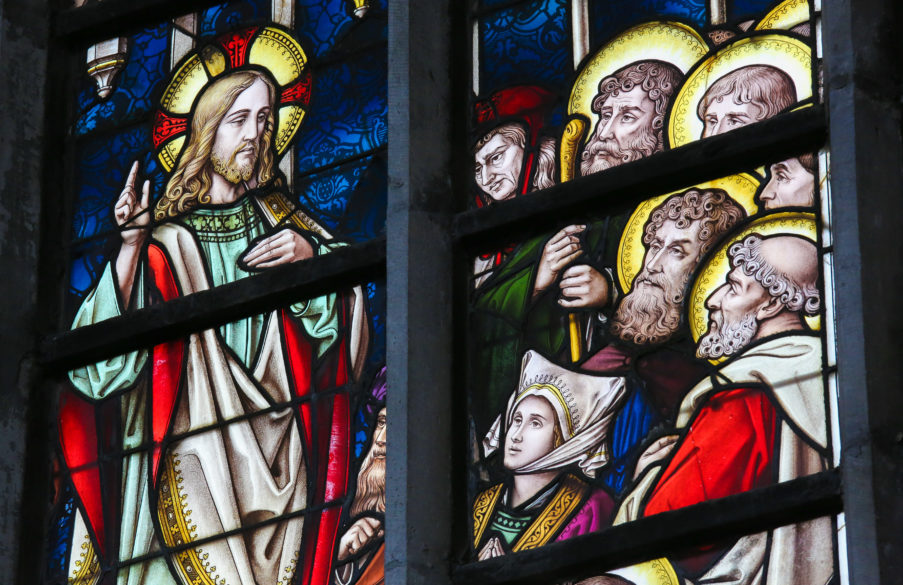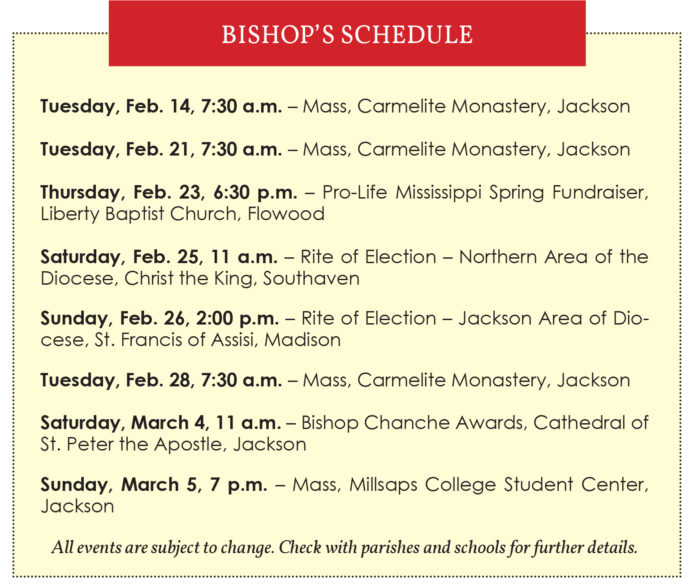By Bishop Joseph R. Kopacz, D.D.
The pastoral visit to Ireland, my second as the bishop of Jackson, delayed over two years by pandemic restrictions, was successfully undertaken earlier this month. Father Mike O’Brien, recently retired, greeted Msgr. Elvin Sunds and me at the Dublin airport, and for the next eight days he provided the best of hospitality; as well as, his well-honed driving skills over hill and dale around a large swath of Ireland.
The primary purpose for this pastoral trip was to visit with, and to gather the available family members of the priests who dedicated their lives to priestly ministry in Mississippi.

Even if we wanted to combine a pastoral visit with a round or two of golf, March is not the time to do it. On the day we arrived we were greeted with two to three inches of snow. I asked how much snow annually falls in Ireland and was informed that it is about two to three inches and a bit. Perfect!
Our signature event occurred when more than 100 family members descended upon St. Patrick Church in Newbridge, one of the churches in the Ballygar parish whence came 17 missionary priests over the years to the Diocese of Natchez-Jackson, now the Dioceses of Biloxi and Jackson.
Some traveled for over two hours to be together and to give thanks to the Lord for the gifts of family, faith and priesthood. The accompanying Mass photos illustrate a full church and the concelebrating clergy. At the altar from left to right is Father Douglas John Zaggi, pastor, Msgr. Elvin Sunds, Father Louis Lohan, myself, Bishop Kevin Doran, the Ordinary of the Diocese of Elphin, Father Mike O’Brien and Father P.J. Curley.
Celebrating this special Mass of Thanksgiving at St. Patrick’s Church brought to light the words of Ireland’s first missionary priest, St. Patrick.
“In the knowledge of this faith in the Trinity, and without letting the dangers prevent it, it is right to make known the gift of God and his eternal consolation. It is right to spread abroad the name of God faithfully and without fear, so that even after my death I may leave something of value to the many thousands of my brothers and sisters — the children whom I baptized in the Lord. I didn’t deserve at all that the Lord would grant such great grace. It was something which, when I was young, I never hoped for or even thought of.” (C 14-15)
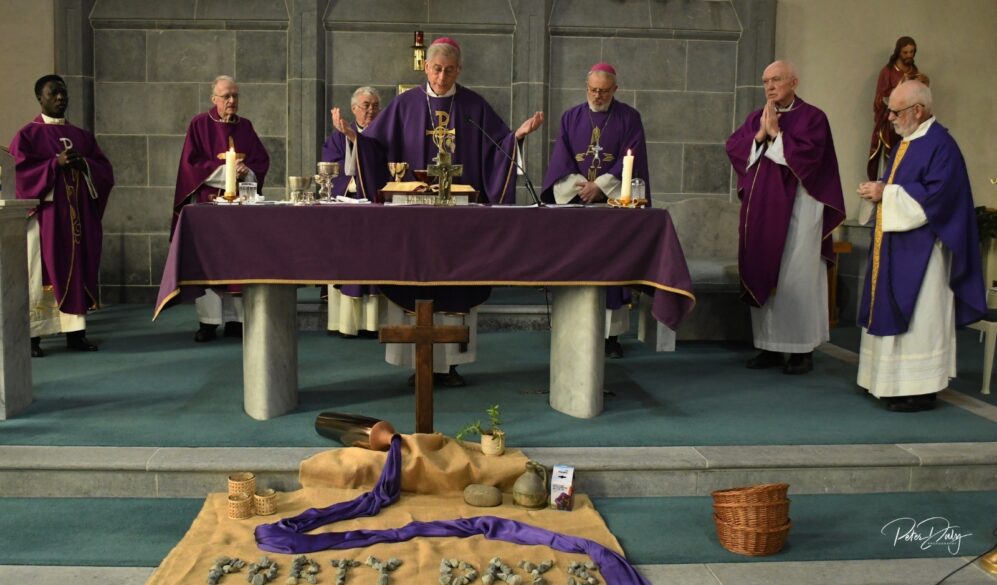
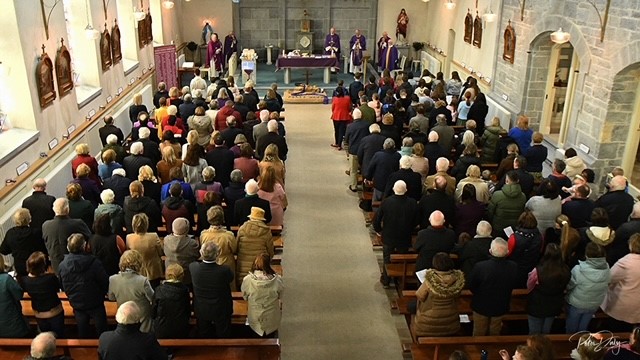
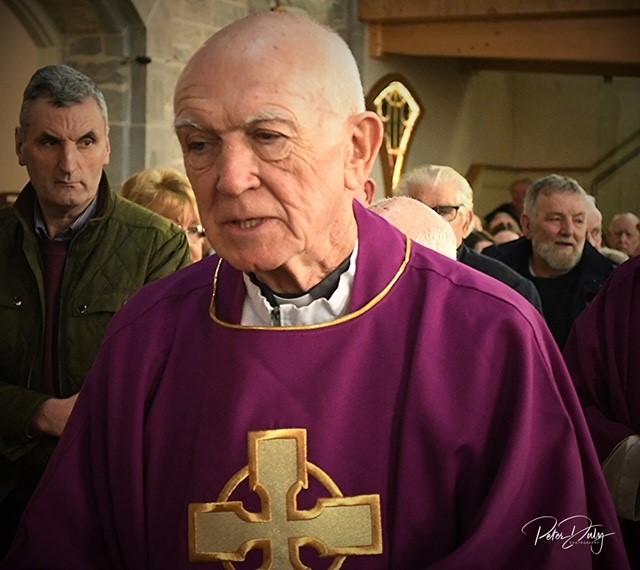
Until recent times, that zeal for the Good News of Jesus Christ captured the imaginations of many Irish women and men who spent their lives as religious and priests “making known the gift of God and his eternal consolation.” For this we gave thanks. A packed parish hall of the faithful enjoyed an Irish feast of meat, potatoes, veggies and fine desserts. You’ve got to love those mashed potatoes.
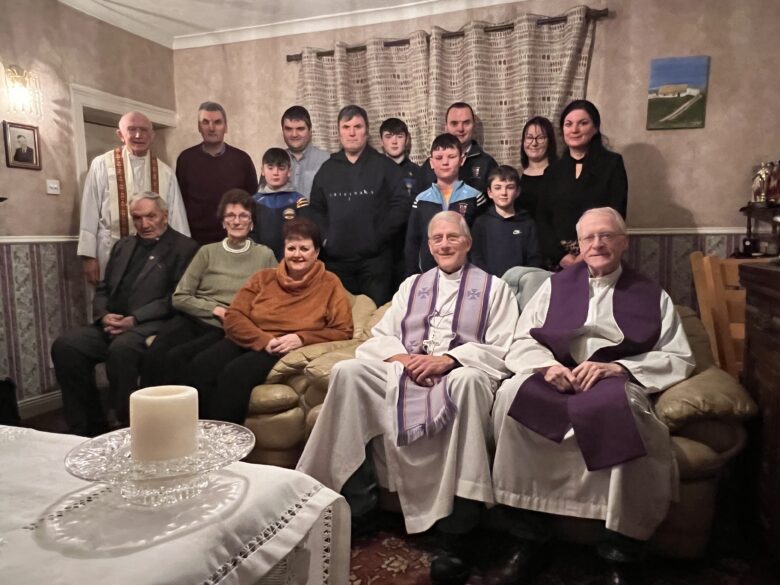

Bishop Kopacz, Msgr. Sunds and Father Mike pose for a photo with the family of Father Brian Carroll after Mass in the family sitting room. Afterwards, they all warmed up by the turf fire and some Irish coffee.
Although the Sunday celebration in Newbridge was the centerpiece of the pastoral visit, there were many opportunities to cherish God’s goodness. Near to Roscommon, the home base during our stay, is the homestead of Father Brian (Speedy) Carroll’s brother, Anthony Carroll. On a balmy 38-degree night with the wind whipping and the rain falling sideways we paid our respects at Father Carroll’s gravesite. Requiescat in pace! Then onto the family homestead to celebrate Mass in the Sitting Room with the turf fire glowing brightly where Father Carroll had celebrated many a Mass over the years. The beloved hymn to the Blessed Mother, “Our Lady of Knock” brought our service to a stirring conclusion. Afterwards we added to the warmth of the evening with some fine Irish coffee.
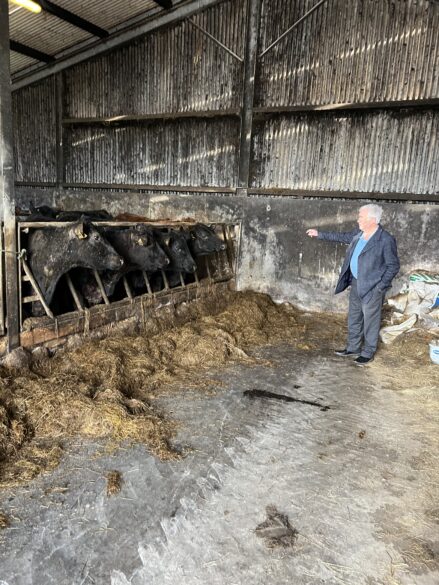

Father Louie Lohan keeps his cows entertained by practicing his homily. On right, a visit to a poultry farm run by Father Noonan’s nephew.
Father Louie Lohan was very instrumental in organizing the visit with Father Mike O’Brien, and he was proud to show us his family farm and livestock. Some might say that he is a gentleman farmer, but it is evident from the photos that he is nearly as much at home in the barn as he is at the altar. Indeed, it appears that he prepares his homilies by addressing the cows so that his preaching does not go in one ear and out the udder. (The humor is compliments of Father Speedy.)
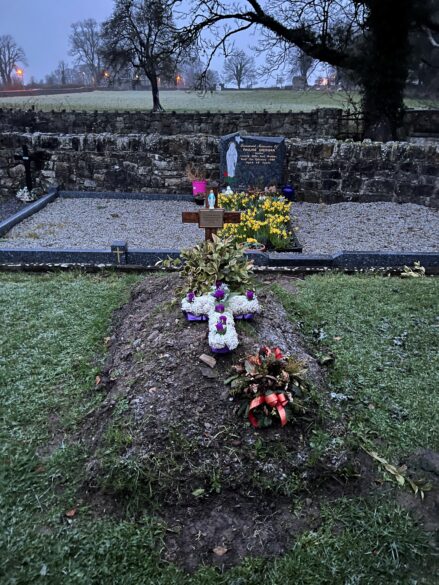
Throughout the eight days we were welcomed into many homes for delightful visits. These drop-ins included members of the O’Brien, Atkinson, Curly and Noonan families to name several. Father Curly was home for the funeral of a sister-in-law and we spent an hour or two at the family homestead. They spoke cheerily of their growing up years in their cozy home, and Father P.J. demonstrated that he could still position himself at full stature under the mantle of the fireplace as he did as a young lad.
During the final days of the visit, we took an overnight trip to visit the Michael Noonan family near Adare in the Limerick region in the southwest. It was nearly six years ago when we spent time with him and his family shortly after the death of Father Patrick Noonan. After paying our respects at Father Noonan’s grave with his nephew, Michael Noonan, we enjoyed a lively visit with his brother Michael and family, sharing many fond Mississippi memories.
Of course, there were many more precious moments that took place, too numerous to count. God willing, the third pastoral visit will occur sooner than the gap of five and a half years between the first and second sojourns.
Until then, dear friends in Ireland, “May the road rise up to meet you; may the wind be always at your back; may the sun shine warm upon your face, the rains fall soft upon your fields, and until we meet again may God hold you in the palm of His hand.”
